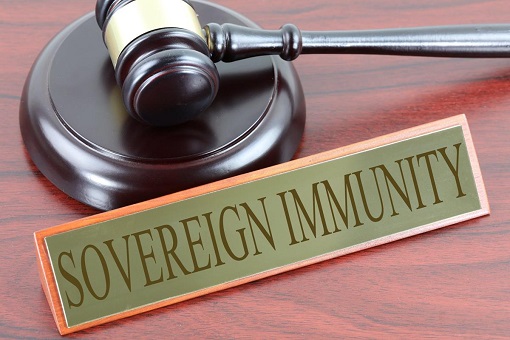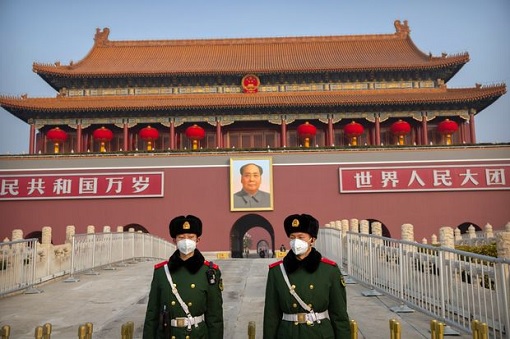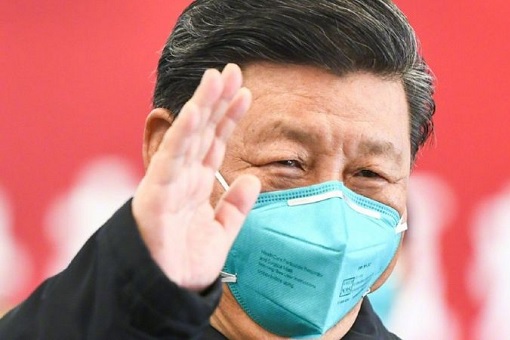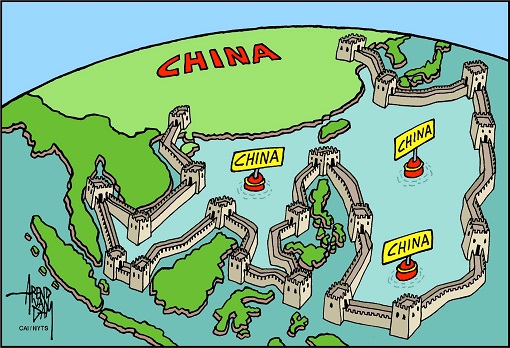Donald Trump warned China last week that it would face consequences if it was “knowingly responsible” for the Coronavirus pandemic. During his daily White House briefing, the U.S. president said – “It could have been stopped in China before it started and it wasn’t, and the whole world is suffering because of it.”
However, Trump did not elaborate what type of actions that his administration would or could take against Beijing. Even if the U.S. could prove that the Chinese was fully responsible, which they can’t for the time being, it’s hard to imagine the Trump administration would dare to slap an economic sanction on the world’s second biggest economy.
As of now, the United States has close to 1-million Covid-19 cases and death toll of over 52,000. Trump has been accusing Beijing of not telling him earlier what was happening so that he could prepare earlier. The president has also cut funding to the WHO (World Health Organization) for allegedly promoting Chinese “disinformation” about the virus.

Blaming China for the pandemic in the U.S., Trump was instrumental in sparking anti-Chinese sentiment in the country through his constant “Wuhan Virus” and “Chinese Virus” mantra. As a result, a growing outrage over Beijing’s handling of the Coronavirus outbreak has seen increasing voices around the world demanding China to compensate for the damages incurred.
In the U.S. alone, lawsuits seeking damages for deaths, injuries and economic losses have been filed in the states like California, Florida, Nevada, Pennsylvania and Texas. Joining the bandwagon is the state of Missouri when its Attorney General Eric Schmitt filed in a federal court this week a lawsuit against the Chinese government over its handling of the outbreak.
Due to China’s response which led to devastating economic losses in the state, Missouri complained that its residents have lost tens of billions of dollars, hence demands cash compensation. The complaint said – “The Chinese government lied to the world about the danger and contagious nature of COVID-19, silenced whistleblowers, and did little to stop the spread of the disease.”

All the lawsuits filed by the American states against China are class-action suits filed on behalf of persons and businesses in the United States. And that’s precisely the problem. The U.S. courts do not have jurisdiction over private class action lawsuits brought against the Chinese government defendants for their alleged misconduct in allowing the Coronavirus to spread.
China’s Foreign Ministry spokesperson Geng Shuang said a lawsuit like the one brought by the state of Missouri not only “has no factual or legal basis”, but will only “invites ridicule”. Yes, like it or not, these suits will most likely to be dismissed because foreign governments enjoy immunity from suit in U.S. courts under the Foreign Sovereign Immunities Act (FSIA).
Even if there is concrete evidence, which there isn’t, that China had deliberately allowed the virus to spread across the continents into America, the U.S. courts have zero jurisdictions against a foreign country. It was also a silly attempt by the Missouri’s Attorney General Eric Schmitt to argue that the Communist Party of China (CCP) is not covered by the FSIA.

Several members of the U.S. Congress have even drafted new legislation that would strip a foreign government of immunity for any acts intended to conceal or distort information about the existence or nature of the Coronavirus, in what appears to be an attempt to treat the virus outbreak as an act of terrorism (under U.S. law, a country that sponsors terror can’t claim sovereign immunity).
But the Coronavirus outbreak is not the same like September 11, 2001 terror attacks where 15 out of 19 of the four plane hijackers were citizens of Saudi Arabia. Even with overwhelming evidence that Saudi was sponsoring the hijackers, the U.S. government has not dared confiscate Saudi assets in the country, despite passing the Justice Against Sponsors of Terrorism Act (JASTA) in 2016 to do so.
Forget about class-action suits filed by the U.S. states. They were non-starter to begin with. Punishing China is the job of President Donald Trump and Congress, not state governments. But even the world’s most powerful man has to be extremely careful in unilaterally and recklessly slapping lawsuits against a powerful country like China. That’s because it involves foreign policies.

Sovereign immunity is based on reciprocity – a shared and respected understanding that we will not allow our people to sue you if you will not allow your people to sue us. In fact, a British court held in 1894 that even if a foreign ruler (Sultan of Johor) enters another country (England), uses a fake name and conceals his true position, and enters into a contract, a lawsuit against him for breach is still barred.
If the U.S. under Donald Trump opens the floodgate of breaking the principle of sovereign immunity, which has been enshrined since 1976, China will similarly retaliate and allows lawsuits against the U.S. government or its officials in China. With the exception of going to war, what else can the Congress and President Trump does if China refuses to pay any compensation?
It would be interesting to see how the U.S. collects evidence in mainland China to prove that the Communist Party of China (CCP) had covered up the Coronavirus outbreak, arrested whistle blowing doctors, hoarded personal protective equipment (PPE) and did not put enough steps to contain the pathogen. Would Beijing entertain the idea of American lawyers interrogating Chinese officials in China?

Of course, U.S. states were not the only one eagerly wanted to sue China. Henry Jackson Society, a British conservative think tank, claims that the UK could potentially claim a whopping £351 billion (US$434 billion) from the Chinese government, arguing that China is bound by international law to report crucial public health information in a timely, accurate and detailed manner.
Claiming that China’s failures have breached at least 2 clauses of the International Health Regulations and that Beijing could be sued for compensation in the International Court of Justice, the British think tank also suggested that the U.S. could claim £933.3 billion (US$1.15 trillion), Canada £47.9 billion (US$59.2 billion) and Australia £29.9 billion (US$37 billion).
Heck, the think tank even said the G7 nations could sue China for £3.2 trillion (US$4 trillion). But the Chinese social media rubbished and mocked the British efforts to seek monetary compensation, with the Global Times reported – “Before asking China to cover the losses incurred by the COVID-19 pandemic, the UK should consider how much it owes China and the world for its colonial activity.”

Similarly, the German tabloid Bild, the most-read newspaper in Europe, published an “invoice” for China demanding 24 billion Euros (US$26 billion) for lost tourism revenue in March and April, 50 billion Euros (US$54 billion) for small business and a further 149 billion Euros (US$161 billion) – if German GDP falls by 4.2% in 2020 as projected.
Besides the International Court of Justice (ICJ), the Henry Jackson Society also suggested that China could be dragged to the Permanent Court of Arbitration in The Hague, Netherlands. Sure, what could go wrong? The last time Philippines dragged China to the arbitral tribunal at The Hague and won the case, Beijing did not even bother to entertain the verdict.
Also known as the South China Sea Arbitration, the Philippines had challenged China’s “nine-dotted line” claim as invalid. The tribunal ultimately found that China had violated the Philippines’ sovereign rights in its exclusive economic zone by interfering with Philippine fishing and petroleum exploration, constructing artificial islands and failing to prevent Chinese fishermen from fishing in the zone.

When the arbitration started in 2013, China declared that it would not participate. When the Philippines finally won the arbitration case at the Permanent Court of Arbitration in The Hague in 2016, China simply said it will not accept the ruling. President Xi Jinping said China’s “territorial sovereignty and marine rights” in the seas would not be affected by the ruling. Not even the U.S. can enforce the ruling. - financetwitter



No comments:
Post a Comment
Note: Only a member of this blog may post a comment.